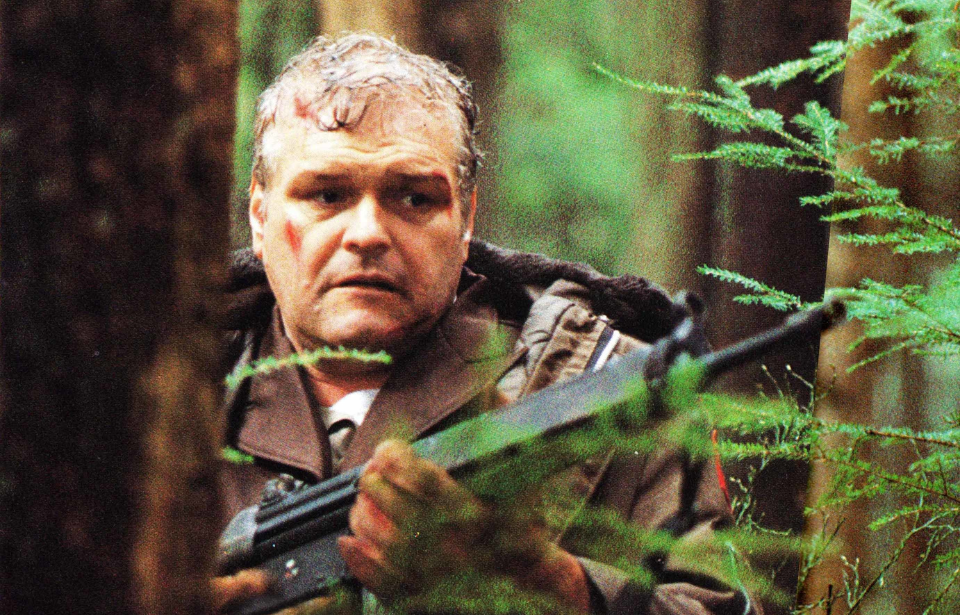Brian Dennehy was known for his roles in several big-name films: First Blood (1982), F/X (1986), and Romeo + Juliet (1996), just to name a few. He was also a US Marine Corps veteran, serving in the military from 1958-63 – and it’s here the famed actor stirred controversy. Throughout his life, he falsely claimed to have served in the Vietnam War, leaving a sour taste in the mouths of those who’d risked their lives during the conflict.
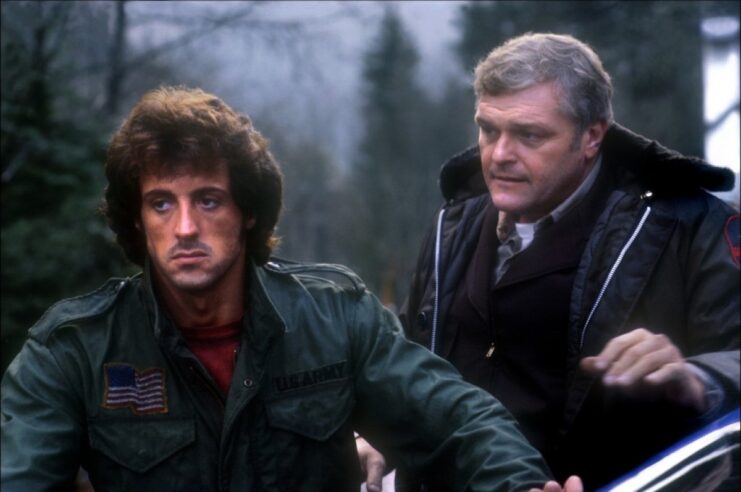
Sadly, it’s not uncommon for individuals to lie about the extent of their service, with there being several instances of stolen valor. Some do it to collect funds from government agencies and the public, while others lie for the recognition war heroes receive after braving the enemy head-on.
An online search allows anyone to purchase medals and uniforms, and social media allows users to create whatever persona they wish. Even before the internet, lying about serving was easy to do, as there wasn’t an easy way to fact-check the stories told – and anyway, who would lie about being a war veteran?
It’s not something you’d expect a celebrity to do, but, as history has shown, it has happened.
Dennehy got his start in Hollywood in 1977, with appearances in two films and three television shows. His first major role came with the first installment of the Rambo franchise, First Blood, in which he portrayed Sheriff Will Teasle. It’s arguably the actor’s most famous role, and it led to many more opportunities in the subsequent decades. He had the respect of audiences across the world, and this only grew upon them learning about his time in the military.
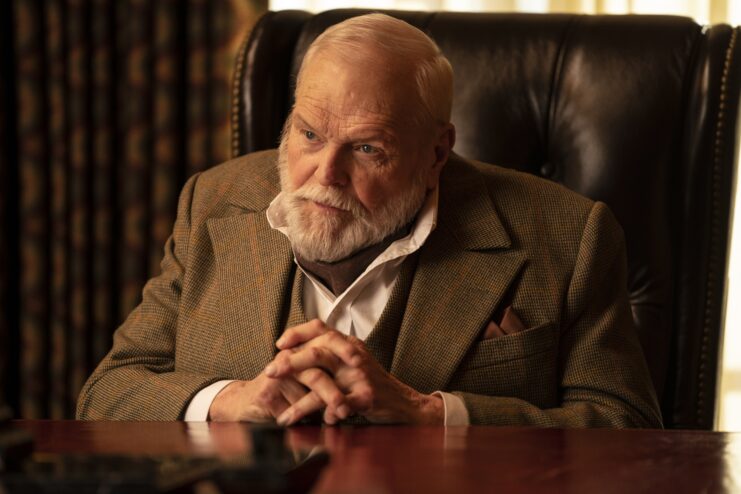
Here is what we know about Dennehy’s service in the Marine Corps. He enlisted on September 15, 1959, and was stationed for a time on Okinawa, where he played football. He left the military on June 4, 1963, just under four years later, before the Vietnam War had really begun to heat up.
Throughout his career, Dennehy claimed to have served in Vietnam. He told Playboy that he’d done a five-year tour during the war, during which he’d suffered minor injuries in combat. He appeared to go more in-depth when speaking with The New York Times, elaborating that the injuries he’d sustained were caused by shrapnel. He also claimed to have gotten a concussion.
He even acted like he knew the mindset of those who’d had to kill while serving, telling Playboy, “As for killing someone, anyone in combat would agree that it’s pretty much accidental. It’s not what you’re thinking about. You spend a considerable amount of time just trying not to be in a combat situation. You’re trying to avoid coming face-to-face with anything. So when something bad happens, it’s usually accidental.
“But the implication in war movies is that war has this rational beginning, middle and end. And of course none of it does,” he continued. “It’s absolutely f*****g chaos. Apocalypse Now is the movie. Even more interesting is that it was made so soon after the war was over. It was and is the most sophisticated overview of the experience.”
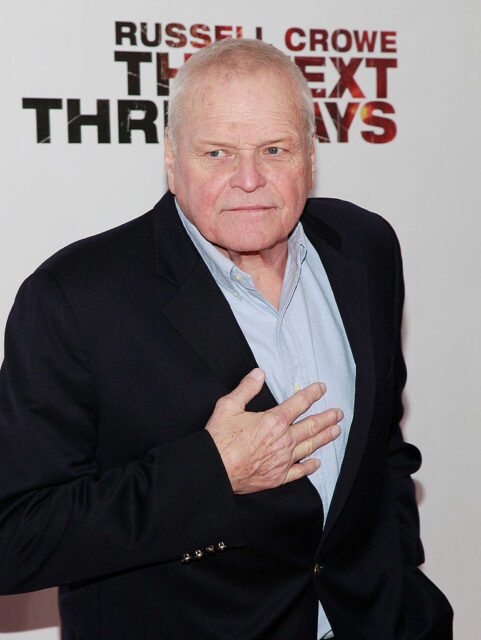
The truth is, Dennehy never served in Vietnam, and he issued a public apology for his lies in 1998 after being called out by B.G. “Jug” Burkett, a real-life veteran of the conflict who’s dedicated his post-war life to outing instances of stolen valor.
“I lied about serving in Vietnam and I’m sorry,” Dennehy told The Globe. “I did not mean to take away from the actions and the sacrifices of the ones who did really serve there…I did steal valor. That was very wrong of me. There is no real excuse for that. I was a peace-time Marine, and I got out in 1963 without ever serving in Vietnam… I started the story that I had been in ‘Nam, and I got stuck with it. Then I didn’t know how to set the record straight.”
As CBS News points out, the closest the actor ever got to “action” during the war was by portraying Marine Sgt. Ned T. “Frozen Chosen” Coleman in the made-for-TV movie, A Rumor of War (1980).
However, despite admitting he’d lied about the extent of his military service, Dennehy began telling the same falsehoods less than 10 years later. As The Denver Post reports, in 2007, he told a journalist with The Wall Street Journal that he’d served in Vietnam. As it turns out, he didn’t feel all that bad about exaggerating the extent of his service; he wasn’t sorry.
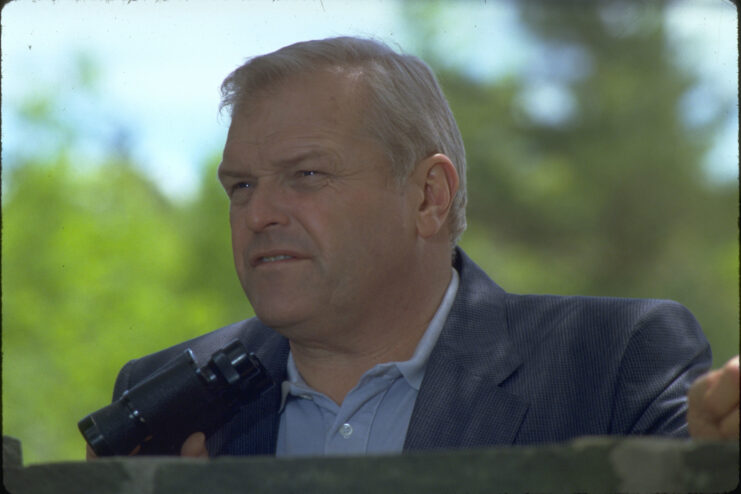
For the most part, aside from outrage from veterans and the families of those who actually served in combat, Dennehy’s career was largely left unscathed by his admission of stolen valor. It could be the average person didn’t understand the true gravity of what he claimed or it could be that, when you’re in Hollywood, egregious behavior isn’t always punished.
More from us: Dale Dye Has Dedicated His Life to the Authenticity of Combat in Hollywood
All instances of stolen valor should be treated with the same amount of scrutiny, regardless of how famous the person is. These claims do a disservice to the real-life bravery of those veterans who risked their lives for freedom and who are deserving of our recognition and gratitude, whether that be in Vietnam, Korea, Iraq – or any war.
